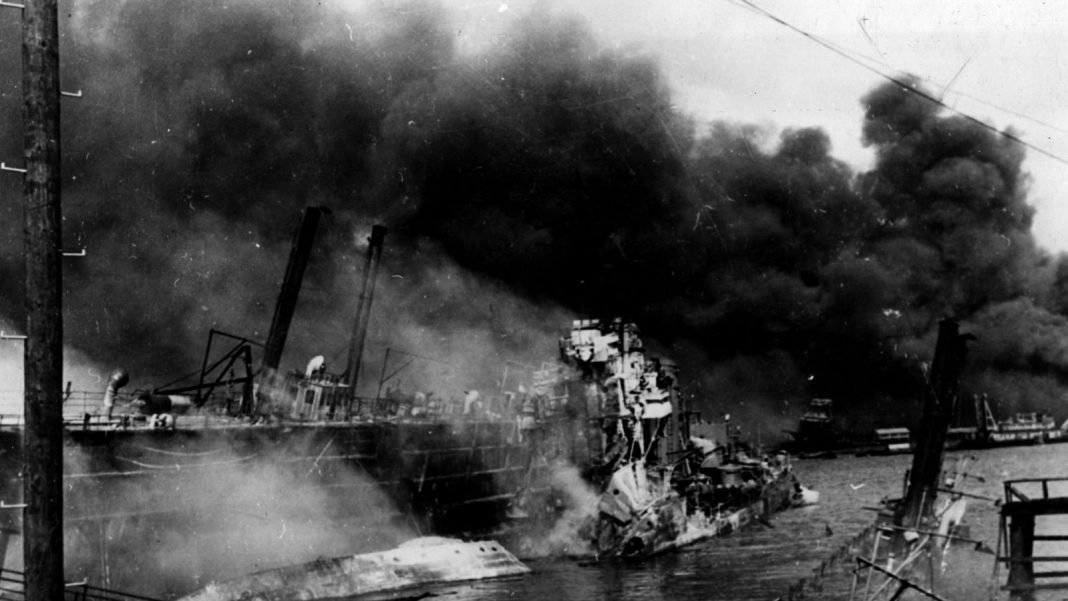Ships bombed at Pearl Harbor more than 80 years ago have provided weather data that could help understand climate change.
Logbooks from US vessels targeted by the Japanese on 7 December 1941 have proved to be a treasure trove for modern-day scientists.
Many of the damaged boats returned to service after the surprise attack, which led to the Americans entering the Second World War, and continued to collect data including sea surface temperatures and wind speed.
“War was all around them, but they still did their jobs with such professionalism,” said researcher Praveen Teleti, a scientist who led new research into the information the crews gathered.
Among the ships were the USS Pennsylvania, which lost nine servicemen in the bombing, and the USS Tennessee, which lost five.
Both returned to service despite suffering direct hits.
Their continued commitment to collecting weather data was key, as overall there was a significant reduction in observations during the war due to disruption to trade routes.
Dr Teleti’s project encompasses records from 19 vessels, spanning more than three million individual observations.
Volunteers transcribed some 28,000 logbook images, helping to paint a picture of what the climate was like in the Pacific between 1941 and 1945.
Read more climate news:
Major retailer ditching all plastic bags
Toxic algae poisoning UK and Ireland’s largest lake
A logbook from the USS Pennsylvania, recorded on 22 December 1941. Pic: University of Reading
‘A time of tremendous upheaval’
The surviving observations suggest more data collection was done during the day as war raged, so crews would reduce their exposure to enemy ships.
It is believed that changes such as this could have led to slightly warmer temperatures being recorded, meaning today’s history books show a period of abnormal warmth.
Dr Teleti, of the University of Reading, said the data would help scientists “understand how the world’s climate was behaving during a time of tremendous upheaval”.
“The greatest respect must go to the brave servicemen who recorded this data,” he added.
The findings have been published in the Geoscience Data Journal.







